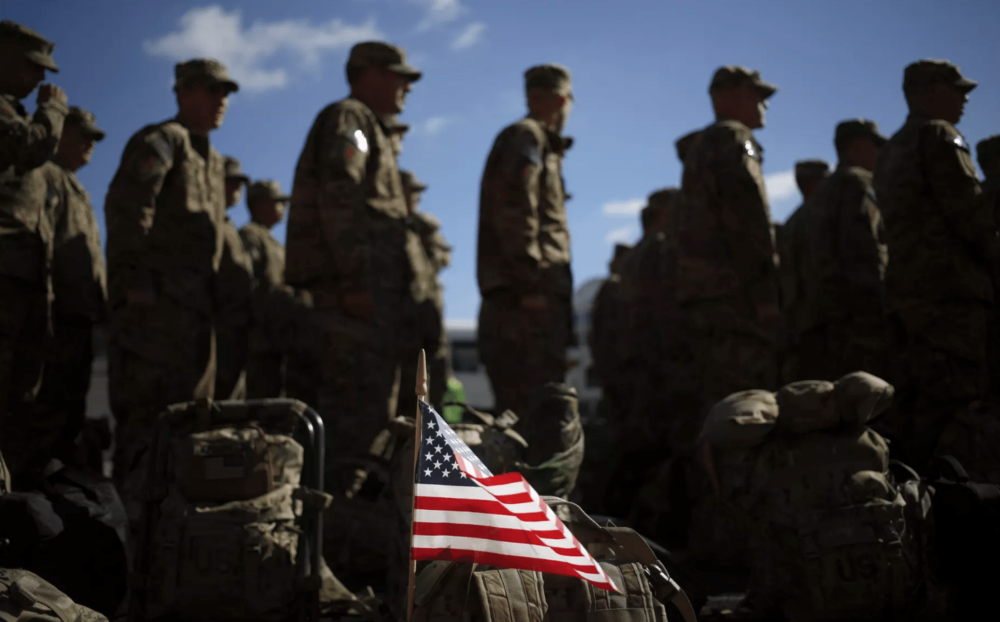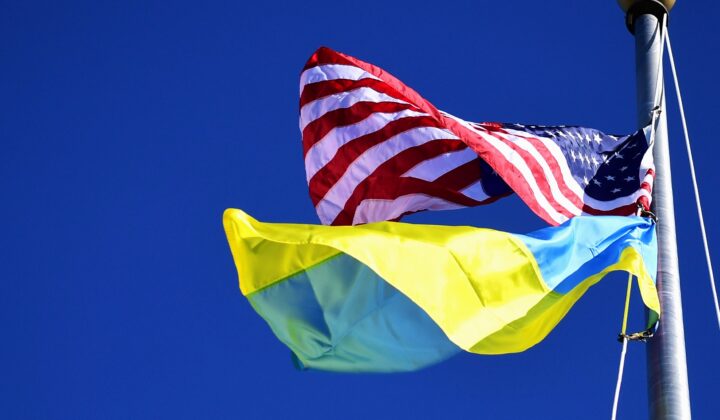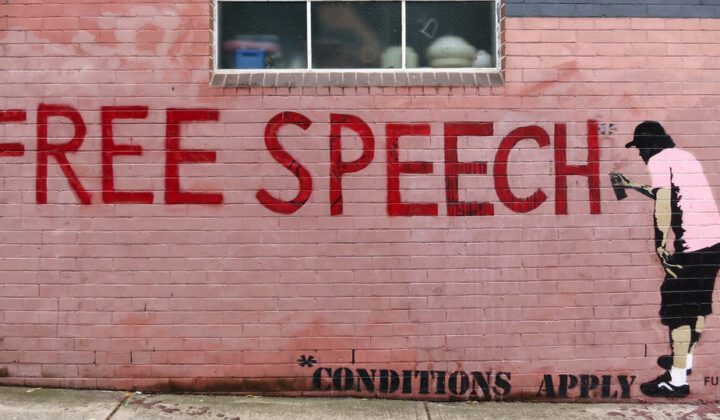President Trump Ignores a Russian Bounty on US troops
The New York Times reported last Friday that a Russian military intelligence unit known as Unit 29155 offered bounties to the Taliban to kill American troops in Afghanistan. The explosive reports were corroborated by various independent news outlets and indicate that classified intelligence on the bounties existed in early 2019. The White House has stated that raw intelligence was shared with U.S. forces as a force protection measure. Interrogations of Taliban militants revealed that several U.S. service members, including three Marines, may have been killed as a result.
The intelligence was reportedly in at least one of the President’s Daily Briefs (PDB), including on February 27th after the Naval Special Warfare Development Group recovered nearly $500,000 from a Taliban outpost. In March, the National Security Council convened an interagency meeting in order to develop a package of potential responses, ranging from making a light diplomatic complaint to increasing Russian sanctions. None of the recommendations were followed. Both President Trump and Director of National Intelligence John Ratcliffe deny that the President was briefed at the time. However, officials attest that both John Bolton and National Security Advisor Robert O’Brien had discussed the matter with the President verbally. On Wednesday, the President claimed the report was “just another hoax,” and last Sunday he tweeted there were “not many” attacks, presumably as evidence that the intelligence wasn’t credible. Democratic and Republican officials alike are now demanding to know why the White House’s response was characterized by ignorance and inaction at the highest levels.
- Why hasn’t the United States responded to these attacks?
It is unclear why President Trump has failed to respond to these attacks on our military. It is possible, though unlikely, that he was not briefed verbally until recently. Moreover, the President is known to not read his PDBs. If the Commander-in-Chief had truly been ignorant of such important national security information, this would suggest a level of dysfunction and negligence in the administration that would endanger the country.
The more likely conclusion, however, is that President Trump was in fact briefed but did not respond. Why?
Since before his election, President Trump had demonstrated a strong affinity for Vladimir Putin. His campaign openly welcomed foreign election assistance to defeat Hillary Clinton in 2016; during his 2018 Helsinki meeting with Putin, he strongly implied that he was more comfortable trusting the Russian President than his own agencies; his decision to withdraw from Syria essentially left our Kurdish allies defenseless while allowing Russia to expand its influence in the Middle East; and he has repeatedly peddled unfounded Russian conspiracy theories that Ukraine interfered in the 2016 election on behalf of Hillary Clinton. What’s more, after President Trump reportedly learned about the bounty on US soldiers, he invited Russia to join the G-7 and reduced U.S. forces in Germany, further weakening NATO. At the very least, these actions show a President who is consistently willing to subordinate America’s interests to the Russian president, even when lives are on the line.
- Does the President want to emulate authoritarian strongmen?
The President speaks positively of the strength of autocrats around the world while bullying allies he considers “weak.” Speaking of Putin, Trump has said he “has very strong control over a country” and that they “get along very well.” On the Chinese President Xi Jinping, Trump said “I consider him a friend … he’s a strong guy, tough guy.” On Turkish President Recep Tayyip Erdoğan: “He’s become a friend of mine … He’s involved very, very strongly and, frankly, he’s getting very high marks.” On North Korean dictator Kim Jong Un: “He’s a tough guy. When you take over a country—a tough country, tough people… that’s one in 10,000 that could do that.” On Hungarian Prime Minister Viktor Orbán: “Highly respected… like me, a little bit controversial, but that’s okay… you’ve kept your country safe.” The president even quoted Benito Mussolini: “It is better to live one day as a lion than 100 years as a sheep.”
Throughout its history, the United States has frequently allied itself with strongmen and despots to advance our self interest. But never before has an American Administration abandoned our allies and interests in order to maintain relations with dictators. This is not normal. It makes it impossible for our country to faithfully promote democracy abroad, and it weakens our ability to protect our democracy at home.

America Loses to the Pandemic
The first case of the coronavirus on U.S. soil was reported on January 20, 2020 in Washington state. By mid-February, the case count had risen to fifteen patients, all with traceable links to China. However, despite early and frequent warnings from the WHO and CDC in January and February, the Trump Administration initially downplayed the risk of the disease. Larry Kudlow, head of the National Economic Council, claimed that the virus was “all but contained” in February. And while the administration was hyper-focused on banning the entry of foreign nationals who had traveled to China, we now know that around 2,000 hidden infections were already spreading across the United States.
The U.S. quickly became one of the worst-hit countries by the outbreak. While some regions and states like California took unilateral and decisive action, others like New York used the fact that the the Trump Administration announced guidelines restricting travel and gatherings on March 16th—weeks after they were recommended—to minimize responsibility for their own missteps.
By April 28th, confirmed cases in the U.S. passed one million, and by June, the number had doubled to over two million, with an unfathomable 126,000 deaths. In recent weeks, America has begun reopening, even as the CDC warns that the first wave of Covid-19 is far from over. This was exemplified when President Trump defied all logic by hosting a campaign rally in Tulsa while many states hit record high numbers of new virus cases. At the same time, a leading health research institute updated its coronavirus projection model, estimating that 176,106 Americans will die from Covid-19 by October 1, 2020.
- Why has this happened?
Many factors contributed to America’s failure in responding to Covid-19, including the lack of a cohesive federal policy and insufficient testing. However, these factors were rooted in a more fundamental failure, the failure of American leadership to exemplify best public health practices and act in the interest of the people. President Trump frequently refused to wear masks, defying the very guidelines the government was endorsing. He also tweeted to liberate states with appropriate social distancing guidelines, sidelined Dr. Anthony Fauci of the CDC when his prognostications were too dire, and appointed his son-in-law Jared Kushner to lead a coronavirus task force.
But failure of leadership wasn’t the only factor. The way the virus was portrayed to the American public in the media and on the internet also had a detrimental effect on its spread. Fake news stories had many believing that the virus was a ploy created by Bill Gates, or that it was actually just the common cold. Other false information, like the idea that hydroxychloroquine was an effective treatment, was commonly perpetrated on Fox News (and even by the President himself). According to a University of Chicago study, greater viewership of ‘Hannity’ – who denied the threat of the virus – relative to ‘Tucker Carlson Tonight’ – who did not – was “strongly associated with a greater number of COVID-19 cases and deaths in the early stages of the pandemic.” In short, the ongoing pandemic was also fueled by our nation’s ongoing infodemic.
- What does this say about America as a democracy?
If what it means to be a strong democracy is to have functioning government systems, to equally protect all citizens, to build trust in government, to rely on evidence for best practices, and to engage in worldwide collaboration, then it’s clear: America is failing on all counts. Coronavirus is disproportionately killing minorities and exposing underlying systemic failures in housing and medicine. The delayed and disorganized response has been indicted as the leading cause of the majority of unnecessary Covid-19 deaths. The Trump Administration ignored and even suppressed proper scientific recommendations while it simultaneously backed out of the WHO, which itself ignored warnings from Taiwanese doctors, preferring to listen to the People’s Republic. This crisis exposes fundamental challenges with how we consume information and relate to one another as citizens with many people struggling to differentiate conspiracy from reality; and where fulfilling some of the most basic civic duties, like wearing masks, becomes a contentious political question. America is a sick nation, in more ways than one.

Dashed Hopes for Democracy in Belarus
Protests in Belarus erupted at the end of May as thousands marched in cities across the country to protest President Lukashenko’s continued rule. On August 9th, Lukashenko, who has held power since 1994, will seek reelection for his 6th term. However, despite the initial hope that these protests could translate into real change, Lukashenko has managed to overpower any actual opposition.
The regime arrested several key figures opposed to Lukashenko’s rule, including a popular YouTuber, Sergei Tikhanovsky, who was running for president on an anti-corruption campaign, and powerful Minsk banker Viktor Babariko. Babariko claimed that he had collected 400,000 signatures, far more than the 100,000 required to get on the presidential ballot. After YouTuber Tikhanovsky’s arrest, Tikhanovsky’s wife gathered enough signatures to replace him on the ballot. However, she has since suspended her campaign.
Still, until recent days, there was hope that the August election would feature competitive candidates. But on Tuesday, Belarus’ elections commission removed Valery Tsepkalo, former ambassador to the United States and founder of a major tech company, from the ballot. Lukashenko no longer has any serious competitors in the upcoming election.
- Is there any history of democracy in Belarus?
No. Since the collapse of the Soviet Union, Belarus has been an authoritarian state, ruled by its current president. It is now considered by some to be the most authoritarian state in Eastern Europe. As president, Lukashenko has jailed his opponents, suppressed free speech, rigged elections, and in 2004, revoked the law that limited his rule to two terms. To get away with all this, he has relied on a network of loyal elites, suppressed institutions outside the executive branch that could threaten his power, and emphasized the importance of a strong, united Belarusian identity.
Many Eastern European countries continue to suffer from the legacy of the Iron Curtain, as this most recent crackdown in Belarus demonstrates. In Hungary, Viktor Orbán has transformed democracy into a one man dictatorship, Poland has increasingly backslid into authoritarian rule, and Russia, after brief hopes in the 1990’s that it could become a democracy, has been ruthlessly governed by Vladimir Putin since 2000. A Constitutional referendum on July 1st would allow him to remain in power until 2036. Indeed, the kind of popular protests that we saw in Belarus may be cause for optimism under certain circumstances, but they too often come face-to-face with the entrenched culture of authoritarianism that defines much of the former Eastern bloc.





